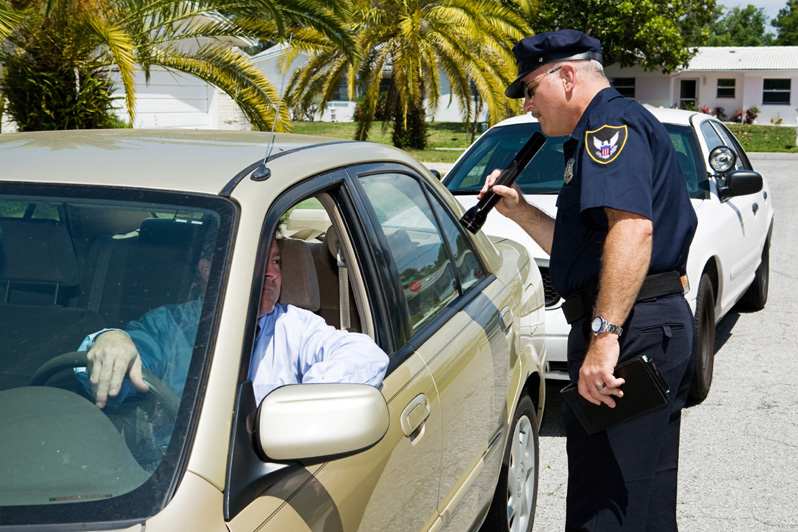

Encountering the police at a traffic stop or home visit can be stressful and fearsome for many people. Especially when a police officer suggests searching belongings, it’s essential for people to know their rights and what their legal obligations are in every case. In some cases, police officers have violated rights by searching belongings without a warrant or probable cause.
If you have encountered police officers and feel you have been subjected to an unlawful search, consulting with an attorney can help you obtain valuable legal resources and defense to negate the prosecution’s claims in a criminal case. At John D. & Eric G. Johnson Law Firm, we’re dedicated to helping our clients with a skilled defense by upholding their legal rights in a police search case.
What Am I Obligated to Say When Questioned by the Police?
In the United States, it’s not uncommon to see police encounters in the media and the frightening details of some unfortunate cases from recent years. Police officers work to uphold Louisiana law and protect the public. It’s essential for people to know their rights and how to communicate during situations such as a traffic stop, law enforcement response to a crime scene, or if the police show up at their doorstep.
During a traffic stop or if approached by law enforcement, it is best to do the following:
- If requested, provide your insurance card, registration, and identification, such as your name and an ID if you have them.
- Remain calm and respectful
- Refrain from fleeing or running
- Don’t consent to a police search and request to see a warrant if you are threatened.
- Request to speak with your attorney
Regardless of the case, if police officers question you regarding a specific crime or during a routine patrol, you have a right to remain silent and speak with an attorney. The arresting officer must notify you of your Miranda rights if you are arrested due to a confession or incriminating evidence. With an experienced Rayville criminal defense attorney, you may obtain the legal help necessary to avoid criminal penalties from law enforcement’s errors and the prosecution’s false claims.
Understanding Your Rights During a Louisiana Police Search
At times, police officers and public officials can overstep their duties and fail to uphold the rights of citizens. In these cases, any incriminating information or evidence is discredited because of rights violations. While interacting with police in Louisiana, it is essential to remember your rights and when you are obligated to comply legally with their suggestions.
Police Search of a Vehicle
If the police pull you over during a traffic stop, you must provide your driver’s license, car insurance information, and car registration. Beyond that, you are not obligated to answer any questions regarding crimes, your whereabouts, or other information. Remaining polite and respectful without interfering with an officer’s duties can help you avoid adverse outcomes. However, if a police officer feels criminal activity is involved and has probable cause for searching your vehicle, you may be obligated to search in this case. Despite this, you do not have to agree to a police search if they request one.
Police Search of a Home or Property
At times, police officers may follow up on or investigate crimes by visiting someone’s home. They may ask to be let in and to ask some questions regarding a crime or investigation in progress. Other times, they may present a warrant to search your home. You are not obligated to search your home or property unless a warrant is presented. You can request for them to obtain a warrant and ask to speak with your lawyer. In the case police are responding to an emergency call or reported crime, they may have probable cause to enter the home or property and conduct a search.
Police Search of Belongings
Depending on the circumstances, you may encounter police officers in different settings. If the police request to search your belongings, such as a backpack, purse, or other items, it is essential to know your rights in this case. Under the fourth amendment in the U.S. Constitution, police may engage in reasonable search and seizure. However, this is limited, and you are not obligated to agree to a police search. Searching your belongings may prove to be warranted in cases involving illegal items, stolen goods, or vital evidence. Other times, an attorney may help prove there was no probable cause and evidence against you is inadmissible in a courtroom.
Attorney Eric G. Johnson May Represent You in a Criminal Case and Help Ensure Your Rights Are Protected
Being approached by police officers or pulled over in a traffic stop can cause many people to panic and worry. However, it’s essential to understand your rights in these situations and how an attorney can help you if you are arrested. At John D. & Eric G. Johnson Law Firm, our seasoned criminal defense attorney Eric G. Johnson has many years of experience representing individuals facing various criminal charges in Louisiana’s courtrooms.
Our legal team works diligently to defend our clients and help better their futures. If you believe police officers unlawfully subjected you to a police search, in a traffic stop, in your home, or by a search of your belongings, consult with our attorney. You don’t have to face the challenges of a court case on your own, and our skilled team may be the help you need to avoid unjust convictions and the prosecution’s inadmissible evidence. To schedule a free case consultation, fill out our contact form or call us at (318) 377-1555.
